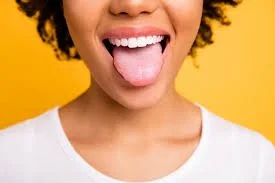
About Traditional Chinese Medicine
What is TCM?
Dating back more than 5,000 years, Traditional Chinese Medicine (TCM) emerged as one of the first medical sciences to treat disease. TCM views health holistically, examining how internal and external factors both play a role in creating a unique pattern of disharmony. With the use of Chinese herbal medicine, acupuncture, and adjunct treatment therapies, TCM aims to rebalance the body and restore harmony. The adjunct treatments we offer include:
Cupping: The use of silicon or magnetic cups to create suction, relieving soft tissue adhesions and improving blood flow.
Moxibustion: A form of smoke therapy involving the burning of mugwort in order to bring heat into the body.
Plum Blossom Needling: Use of a 7 star needle to treat disorders of the skin or channels.
Bloodletting: Therapeutic release of small amounts of blood from specific acupuncture points to disperse pathogenic heat.
Gua Sha: A press and stroke technique using a flat edged tool to promote circulation.
What is Chinese Herbal Medicine?
In use for thousands of years, Chinese herbal medicine is used to assist and adjust organ function. It often includes a combination of herbs which work together synergistically rather than just one single herb, making it more potent than Western herbs. Chinese herbal medicine is excellent at treating chronic illnesses where internal organs are affected such as gastrointestinal conditions, hormonal imbalances, and autoimmune diseases as well as acute illnesses such as the common cold or flu.
What is Acupuncture?
Acupuncture is the insertion of thin, sterile, single use needles into acupuncture points for the purpose of redirecting qi (energy) flow within the meridian network, the body’s energetic channel system. Through redirecting qi we can guide it to organ systems that need it or away from organ systems where it has accumulated pathologically.
What to Expect During Your First Treatment
Initial Intake
We will go over a detailed health history about your condition covering topics such as when it started, symptoms you are experiencing, what makes them worse or better, etc. We will then check your pulse and look at your tongue. These are diagnostic tools in TCM for discerning pathological flow of qi in various organ systems.
Treatment
After the intake we will discuss any questions or concerns you have before proceeding with acupuncture treatment. Your session may include additional adjunctive therapies, depending on your needs and preferences, such as moxibustion, gua sha, plum blossom needling, or bloodletting technique.
Follow Up
At this point you are welcome to ask any additional questions you may have. Herbs may be prescribed along with dietary and lifestyle suggestions. We will also discuss a treatment plan and estimate how many visits may be needed to meet your health goals.
How Should I Prepare For My Treatment?
Comfortable Clothing
Wear loose fitting, comfortable clothing. Many of the acupuncture points we use are located on the lower legs, feet, forearms, wrists, and abdomen. Loose clothing makes these points more easily accessible.
Light Meal
Eat a light meal 1-2 hours before your treatment. It takes energy to move energy. Eating a small meal ensures that you get the most out of your treatment.
Tongue Coating
Please do not brush your tongue before treatment. Your tongue coating is an important diagnostic tool which tells us a lot about the state of your organs.
Self Care
Give your body what it needs after treatment. We are correcting qi flow within your body. For some, rest may be nourishing, and for others, perhaps light exercise may feel more balancing. In either case, free up your day to follow the rhythm of your body.
FAQs
-
For most patients acupuncture causes minimal to no sensation. Many people find it to be very relaxing. For patients who are more sensitive, acupuncture may cause slight discomfort that normally resolves within a few seconds. If this is the case, we can utilize techniques to reduce the sensation for you.
-
This will vary for everyone and is dependent upon factors such as age, the condition we are treating, how long you have had it, how severe it is, and how quickly your body responds to treatment. Many people feel improvement after a couple of treatments. However, if a condition has been ongoing for several years, it may take more time and patience to see results.
-
This depends on the condition we are treating and its severity and duration. For more acute conditions, herbs may be prescribed for a few days to a couple weeks. For more chronic conditions, herbs may need to be taken for a few weeks to a few months.
-
During our first appointment, the extensive medical history intake includes discussing your current medications. We recommend that you take herbs at least 3 hours apart from your medications. If any changes to your medications occur, we ask that you let us know.






